Search
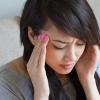
How Aura May Trigger Migraine Pain
Migraine headaches can last for days. Some people have what’s called an aura before migraine pain sets in. Aura can include visual disturbances, such as seeing flashing lights. And it can include other sensory changes, like numbness or tingling. Scientists have known that aura is caused by a disruption of electrical activity within the brain. But they hadn’t yet figured out how the aura might…

Don’t Give In to Gum Disease
Periodontal, or gum, disease is an infection of the tissues that hold your teeth in place. It usually arises because of poor brushing and flossing habits. This can lead to a sticky film of bacteria called plaque, which builds up and hardens on teeth. The hard buildup, called tartar, can only be removed by a dentist or dental hygienist. If not treated, gum disease can spread to the bones around…

Genomics Educational Resources
Genomics is the study of all of the genes and DNA in a person or living thing. Learning about how your genome works can help you better understand your own health. Discover the world of genomics with this NIH resource. Teachers, students, and others can get fact sheets, infographics, and other educational tools.
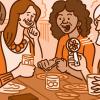
Managing Menopause
Hot flashes. Trouble sleeping. Sudden changes in mood. Problems with your bladder. Pain during sex. These are all common but uncomfortable symptoms of the transition to menopause. Menopause isn’t a disease or disorder. It’s a normal part of a woman’s life. Menopause marks the end of menstrual cycles and fertility. Even though it’s a natural process, the transition to menopause can be difficult…, Starting the Transition, The ovaries contain all of the eggs at birth they will ever contain. The menstrual cycle controls the monthly release of eggs until menopause. The menopausal transition starts when this process changes and production of, [qtip:hormones|Substances sent through the bloodstream to signal another part of the body to grow or react a certain way.], like estrogen begins to decline. Most women start this transition (also called perimenopause) in their late 40s. But it can happen earlier or later. During this time, women may experience certain symptoms, such as changes in their periods and hot flashes. If a woman hasn’t had a period in 12 months, she can say she’s entered menopause. But for many women this transition is less clear. “Around one…, Cooling Hot Flashes Down, Many women experience only mild symptoms during perimenopause. For others, symptoms are severe and can interfere with work and life. The most common are called vasomotor symptoms. These include hot flashes and night sweats (see the Wise Choices box). “A lot of symptoms can be interrelated,” says Dr. Andrea LaCroix, a menopause researcher at the University of California, San Diego. “If you have…, Tackling Other Symptoms, Many women struggle with sleep during the menopausal transition. Studies have found that a type of talk therapy called cognitive behavioral therapy, or CBT, can help women with sleep problems during this time of their lives. Physical activity, yoga, and mindfulness can also help women feel better, stronger, and more in control of their reactions to many symptoms, LaCroix explains, even though…, Health in Midlife and Beyond, Lifestyle changes can help you stay healthy during and after midlife. The risks for some health problems go up after menopause. These include heart problems, bone weakness, and diabetes. Whether this is due to menopause or the overall aging process isn’t clear. “But the advice is the same as for all through our lives,” Dutta says. “Focus on good nutrition. Get good sleep. Manage your stress…
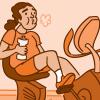
Stopping Middle-Age Spread
If you’re an adult in the U.S., you can expect to gain 10 to 25 pounds between your 20s and your 40s. Starting between ages 30 and 40, you may find losing weight and exercising more challenging. The exercise you do may not have the same effect as before. It’s not necessarily a sign that something is wrong. This weight gain in middle age—known as “middle-age spread”—is a natural consequence of…, [qtip:metabolism|Chemical changes in the body that create the energy and substances you need to grow, move, and stay healthy.] , tends to slow down as you get older,” says NIH’s Dr. Rafael de Cabo, an expert on aging. “But your appetite and your food intake do not. So, you have a steady increase of body weight with age.” Much of the weight gain comes in the form of fat tissue. The distribution of fat in your body also shifts. There’s less under your skin and more around your internal organs. Meanwhile, you start to lose…, [qtip:neurodegenerative diseases|Diseases in which nerve cells stop working or die.], , goes up with age. Excess weight can further heighten these risks. Fortunately, you can take steps to maintain a healthy weight as you age. Your diet can play a key role. Having a slower metabolism means you’ll need fewer calories. But you also want to make sure you still get all the nutrients your body needs. Get tips on healthy eating as you age. De Cabo studies the effects of dietary changes…
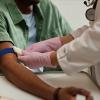
Accurate Blood Test for Alzheimer’s Disease
Older adults who are worried about their thinking, memory, or reasoning skills may want to get tested for Alzheimer’s disease. But current tests are invasive and expensive. One type uses a sample of spinal fluid. Another uses expensive brain imaging. These tests can’t be done in primary care clinics, which limits access for many people. To address these issues, researchers have been trying to…

What Is ADHD?
Attention-deficit/hyperactivity disorder (ADHD) is a condition that first appears during childhood. It can last into adulthood. ADHD can lead to a wide range of ongoing symptoms that interfere with friendships, schoolwork, and daily life. Some people with ADHD find it hard to pay attention or remember important things, like daily chores. Others may be hyperactive and have trouble sitting still or…

Drug Use and Addiction
Get plain and simple facts about drugs and addiction. Learn how different drugs affect the brain, including over-the-counter and prescription drugs. Find out about who’s at risk for substance use, what happens to your brain during addiction, and the importance of prevention.
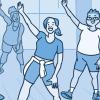
Preventing Diabetes
Chances are, you know someone who has diabetes. It might even be you. Diabetes is one of the most common disorders in the U.S. It affects about 1 in 9 Americans. Diabetes raises your risk for serious health problems. It can damage the eyes, kidneys, nerves, and heart, and it is linked to some types of cancer. Now, what if you learned that there’s a low-cost, scientifically proven way to greatly…, Are You at Risk?, Diabetes is a disease that occurs when your blood glucose, also called blood sugar, is too high. Glucose is your body’s main source of energy. Normally, a, [qtip:hormone|A substance produced in one part of the body to signal another part to react a certain way.], made by the pancreas called insulin helps glucose get into your cells to be used for energy. If you have diabetes, your body doesn’t make enough insulin or use insulin properly. Glucose then stays in your blood and doesn’t reach your cells. Anyone can get type 2 diabetes, even children. But certain factors can raise your risk. You’re more likely to develop type 2 diabetes if you are at least 35…, A Role for Medications, Although making healthy lifestyle changes has proven effective for preventing diabetes, it doesn’t work for everyone. For those people, medications may help. NIH’s DPP study looked at whether the diabetes drug metformin might also prevent or delay diabetes onset. It found that the drug could reduce the risk of developing diabetes by about 30%. For some patients, a combination of metformin and…, Healthy Changes That Last, “Making lifestyle changes is hard. So it’s important to get the support you need to make the changes last,” says Dr. Joshua J. Joseph, a physician and diabetes researcher at Ohio State University. “You can get that support through programs like the CDC’s National Diabetes Prevention Program (NDPP) .” NDPP is based on the findings of NIH’s DPP study. It aims to help people make long-term lifestyle…

Feeling SAD?
Many people get the “winter blues,” a mild sadness as the days get colder and shorter. But some people experience clinical depression with the seasons. This is called seasonal affective disorder, or SAD. Symptoms of SAD usually start in the late fall or early winter. Episodes generally last around five months, easing up when the next season comes. Some people experience SAD in the summer. This is…
NIH Office of Communications and Public Liaison
Health and Science Publications Branch
Building 31, Room 5B52
Bethesda, MD 20892-2094
Contact Us:
nihnewsinhealth@od.nih.gov
Phone: 301-451-8224
Share Our Materials: Reprint our articles and illustrations in your own publication. Our material is not copyrighted. Please acknowledge NIH News in Health as the source and send us a copy.
For more consumer health news and information, visit health.nih.gov.
For wellness toolkits, visit www.nih.gov/wellnesstoolkits.
